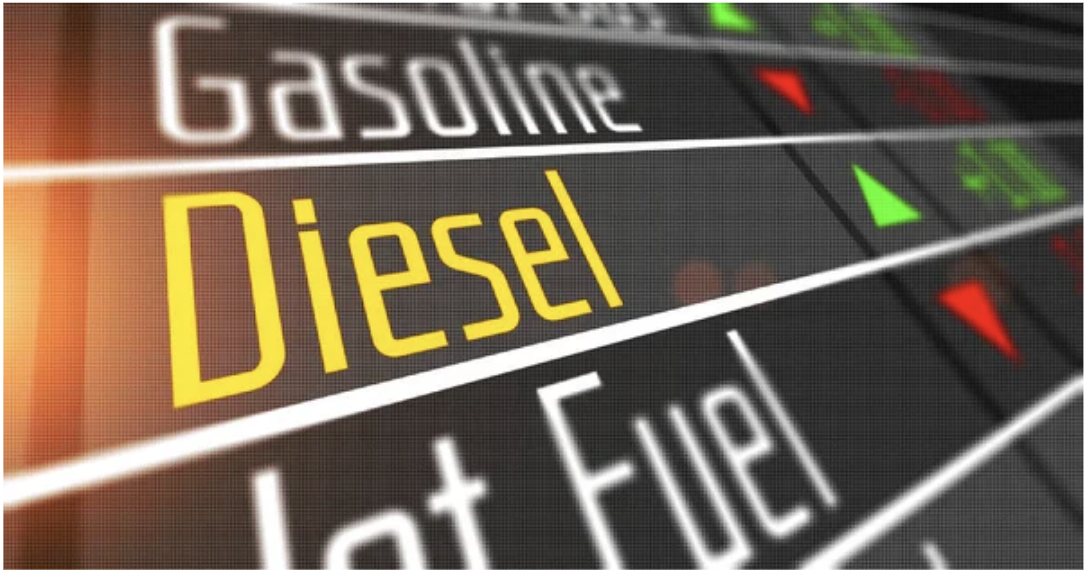Diesel typically represents the largest single category of spending for transportation businesses. As a transportation fuel, diesel provides various benefits: better efficiency, performance, and safety.
While maintenance and repair are necessary costs, an increase in diesel can substantially cripple businesses by inflating operating costs. In recent years, companies have struggled to maintain profitable trajectories with the wide swinging price changes.
Fortunately, the price of diesel has been going down since June. Reaching a high of $5.81 /gallon and currently sitting at $5.08 /gallon.
The widespread push for a mostly electric transportation system around the globe is also causing fear in business owners who aren’t sure whether they can afford the transition and don’t know when they will be expected to replace their fleet of combustion engine vehicles.
Importance of Diesel to the US economy
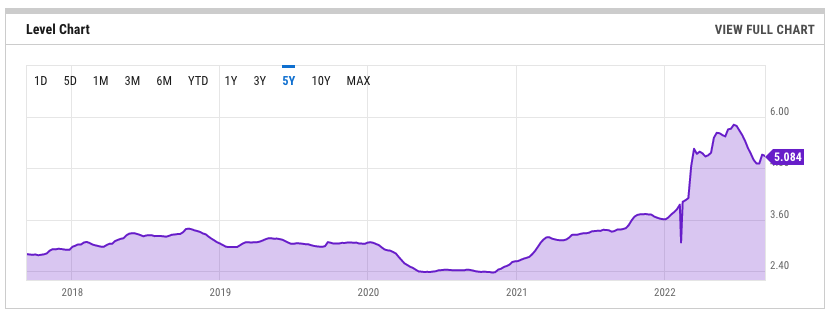
In the US, most goods and products are transported via trucks and trains that run on diesel. In fact, farming, construction, and military vehicles also rely on diesel fuel.
Diesel is also used for electricity generation. According to the US Energy Information Administration (EIA), the US transportation sector’s distillate fuel consumption (primarily diesel fuel) was around 46.82 billion gallons.
Price Trend Analysis
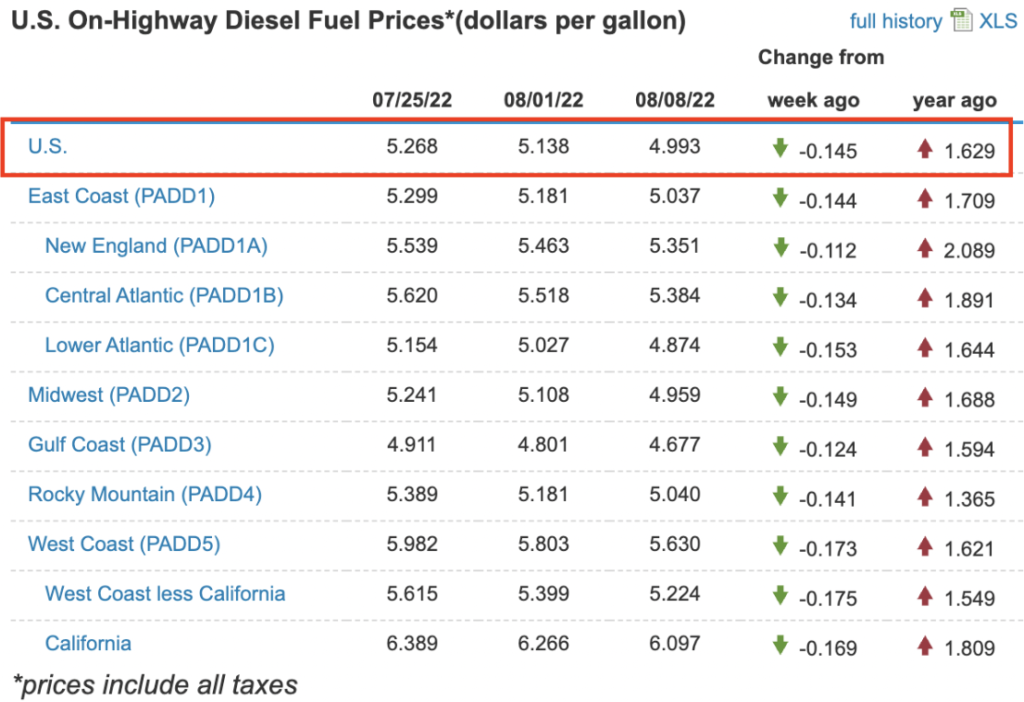
The US Energy Information Administration (EIA) recently conducted an On-Highway Diesel Fuel Price Survey using new statistical methodologies that estimate weekly diesel fuel prices per gallon.
In the latest release, the price of diesel has decreased from $5.138 per gallon to $4.993 within a week, which is a 2.82% decrease.
Weekly Retail Gasoline and Diesel Prices
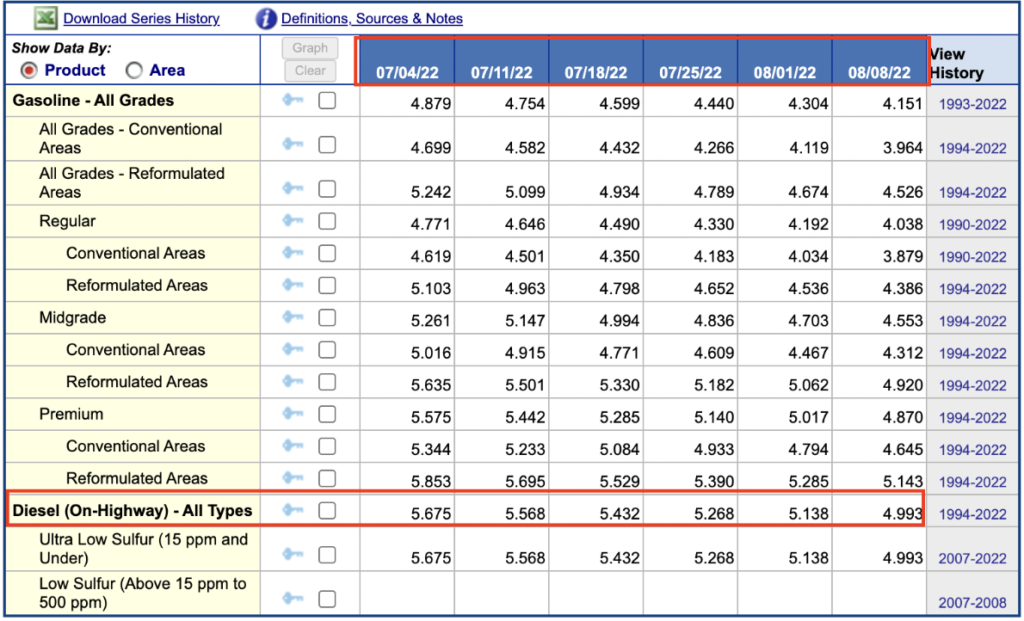
To understand more about changes in the prices of diesel, let’s consider more price-related data. According to EIA, the price of diesel on July 4, 2022, was at around $5.67, which has decreased somewhat consistently to a price of $5.08.
Factors Affecting Diesel Prices
To make optimal decisions for your business, understanding the factors affecting diesel prices is a smart way to stay ahead of the curve and make decisions that will help your company in the future.

Crude Oil Cost
The price of crude oil is the largest component contributing to the retail price of diesel fuel, and its price varies due to several factors. This includes the costs associated with extraction and transportation.
According to the EIA, crude oil costs are determined by global demand and supply where a price increase is the result of an increase in demand or reduction in supply.
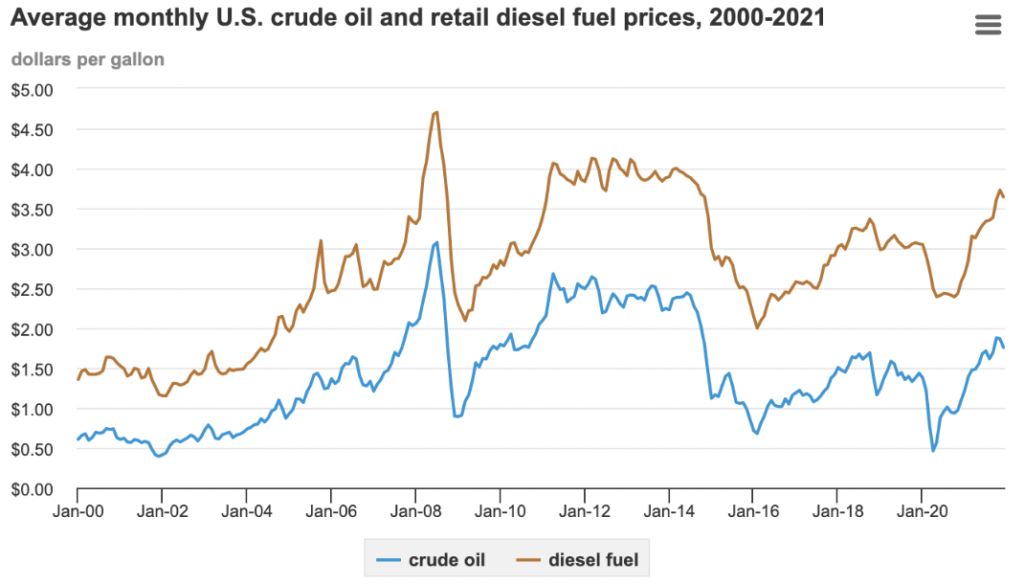
The Organization of the Petroleum Exporting Countries (OPEC) can impact crude oil costs. OPEC comprises countries that have the world’s largest oil reserves. It is estimated that OPEC countries control around 71% of the world’s crude oil reserves.
Not to forget, economic growth is one of the key factors in determining the cost of crude oil, as growing economies focus on expanding their demand for energy and transporting goods and services.
Refining Capacity & Deliverability
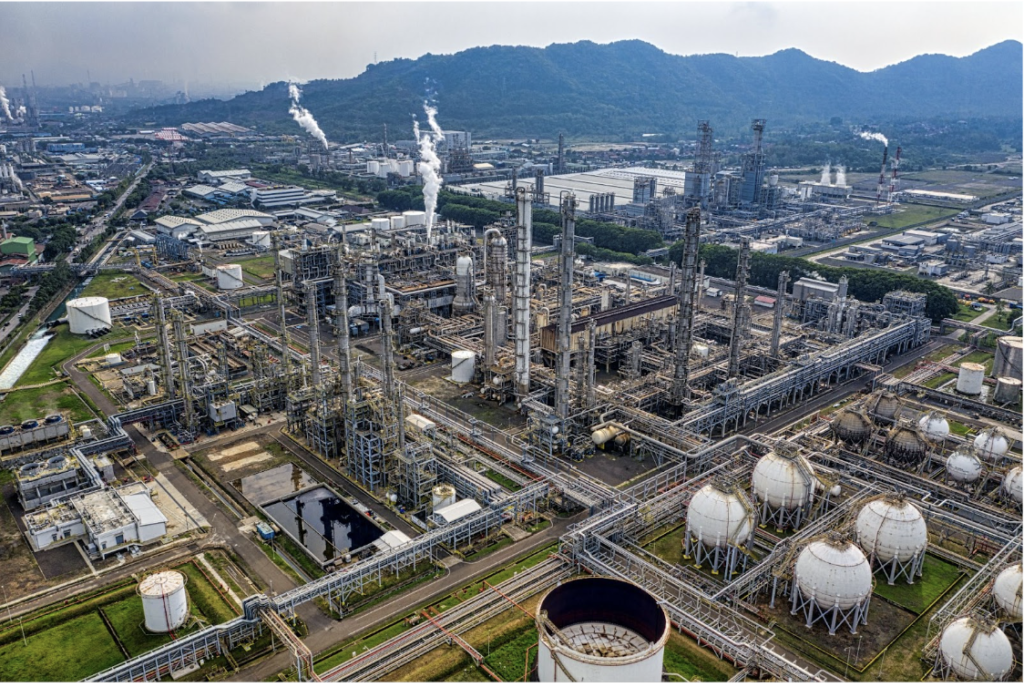
Diesel oil must be refined before it can be used as a vehicle fuel. Modern diesel fuel has been refined through a complicated process called alkylation, which converts the hydrocarbon molecules into shorter, more complex ones. The result is lighter, less dense fuels that burn cleaner and more efficiently than crudes.
On-road diesel needs further refinement. In order to reach the 15 ppm sulfur limit, almost all streams required to produce diesel fuel need hydrotreating to decrease the sulfur concentration. Also, adjusting the cetane rating is necessary before diesel can be used.
Imbalances in US diesel fuel demand and supply can cause fluctuations in diesel fuel prices. For instance, if supply declines due to refinery problems, diesel reserves may decrease. On top of this, in such scenarios, the wholesalers usually place a higher bid for available supplies. Prices would remain relatively higher if the diesel transportation system could not keep up with the supply flow between regions.
Diesel Fuel & Oil Distribution

After the refining process, the fuel is supposed to be distributed to stations, so transportation and distribution costs are the key features affecting the price of diesel fuel.
Transportation costs typically increase depending on the distance between sources of supply and retail locations.
Diesel Fuel Taxes

The price truckers need to pay depends on the kind of tax the federal and state governments have imposed on diesel. Each state has a different tax rate for different types of fuel.
Diesel Price Breakdown:
- 10% for taxes
- 14% for distributing and marketing
- 29% for refining costs and profits
- 47% for crude oil
West Coast’s Diesel Fuel Prices

Diesel fuel prices on the West Coast – especially in California – are higher and more fluctuating than those in other areas due to taxes and supply issues. In July 2020, EIA reported that total state taxes on retail on-highway diesel fuel in California was 66.66 cents per gallon. On the other hand, the average total state taxes for all 50 states was 31.76 cents per gallon.
Not to forget, California remains most vulnerable to the poor West Coast supply conditions. Contrary to other U.S. markets that have interconnected pipelines and river systems, the West Coast’s fuels market is comparatively isolated. It is only supplied by in-region refinery production. Hence, it can be expensive to transport supplies from outside the region.
Important Tips for Decreasing Fuel Costs
It is important to keep an eye on global fuel trends. However, you can’t necessarily control global fuel trends, so there are a few things you can do to keep your business’s fuel costs optimized:
Buy Diesel Fuel in Bulk
Purchasing wholesale fuel is one great way to save money on fuel. Your business can enjoy the benefits of onsite fuel, more reliability, fewer contaminants, and more predictable fuel economy.
To buy diesel fuel in bulk, you would need to sign up with a wholesale vendor like:
Optimize Your Routes
A great way to cut down on fuel expenses for your business includes researching shorter routes with low traffic rates to ensure efficient use of fuel.
Today, there are TMS (Transportation Management Services) providers that are dedicated specifically to helping motor carriers optimize their routes.
Sign up for Fuel Cards
Fuel cards are a great way to help reduce fuel costs for your business. Using fuel cards, companies can save money by getting significant discounts at the pump and flexible payment options.
One resource for finding the best fuel cards is TruckingCompanyTools.com which has dozens of providers to choose from.
Conclusion
Diesel, due to its wide usage, contributes heavily towards the progress of an economy. The decrease in diesel prices for the last consecutive weeks offers some relief to the businesses, as in today’s fiercely competitive market, a business has to strive hard to manage its operating costs in order to retain its market share and profitability. Besides, you can also use the tips to decrease your business’s fuel expenses.


